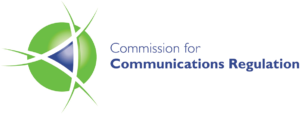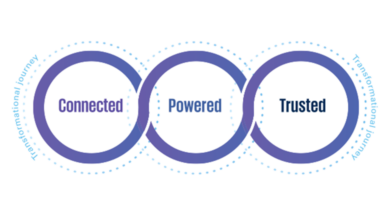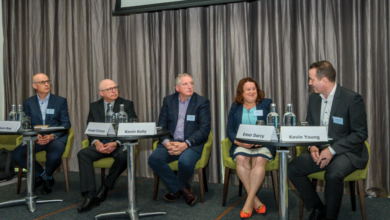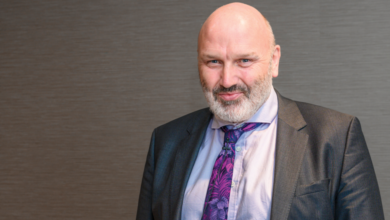Investment through healthy competition
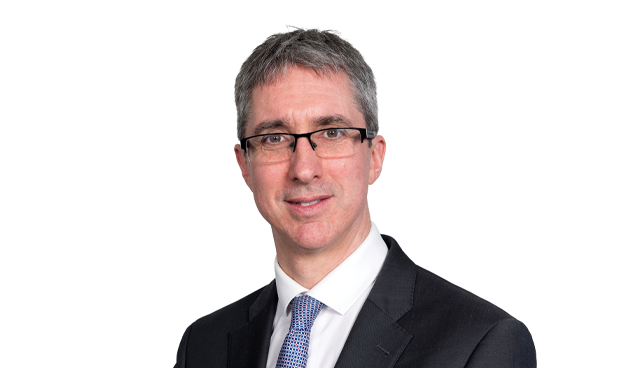
Garrett Blaney, Chairperson and Commissioner at ComReg, talks to eolas about the similarities in regulating energy and telecoms and how the regulatory body puts the consumer at the core of its activities.
Telecoms regulator Garrett Blaney has been on a steep learning curve in the first six months in his role as Chairperson of ComReg. Whilst more than familiar with the regulatory process, having been Ireland’s energy regulator for most of the last decade, he is getting to grips with the detail of the telecoms sector. “I’ve been greatly impressed by the ComReg team and their level of expertise,” he states.
When asked about any differences or similarities between the two regulated sectors, he replies: “There are clear differences. In energy the networks are regulated as natural monopolies. The reality in telecoms is that there is competition in networks with differing and competing services at the network level. Ensuring that this competition is sustained is a core part of the regulatory function in telecoms.
“In many ways both sectors are also the same. The fundamentals of economic regulation are the same and are ultimately about delivering outcomes for consumers by ensuring healthy competition that promotes investment. With increasing digitalisation, that investment more than ever underpins the whole economy.”
EU framework
Blaney joins ComReg at a time of rapid change. One of the first things in his in-tray is the new EU Electronic Communications Code, which is significant new legislation facing the sector. “Although it builds on the current EU legislation, it’s a new set of rules,” he explains.
One of the key elements of the framework is through appropriate regulation supporting investment in very high capacity networks; fixed, mobile and wireless networks. The new framework is due to be transposed into Irish law by the end of the next year.
Looking at the investment in very high capacity fixed networks, Blaney highlights the high level of interest and investment in fibre to the home. This has been achieved mostly through competition in the market and “where that is not feasible, we welcome the Government’s National Broadband Plan process to ensure that there is also delivery of high capacity networks in the non-commercial areas”.
On the mobile side, 5G is the equivalent high capacity on the mobile networks. Although he acknowledges the high level of interest, he explains: “We are keen to make sure that 5G is not just about a brand change, but about the delivery of real improved capacity and services for consumers.
“There is a lot of hype around 5G, and there is still work to do on the standards for 5G, but we see a key role for ourselves in providing sufficient spectrum. We have been one of the leaders in getting 3.6 MHz out and we will soon be following up with a large package multi-band spectrum award. That will give a range of bands across the spectrum to support, not just 5G, but all the new technologies.”
Blaney emphasises that ComReg is “technology neutral” and allows the market to decide how it wants to use the spectrum.
Healthy competition
An important role for ComReg is to ensure healthy competition in the telecoms market. “The reality is that there is still significant market power in the Irish market. It is our role to ensure that significant market power doesn’t unfairly distort competition. There are several areas where we have taken action, after a lot of market analysis, to ensure that significant market power isn’t a deterrent to efficient investments.
“With all this extra capacity available, and as we move toward with high speeds available in both fixed and mobile networks; how will it be used? Coming from the energy sector, it’s interesting to see how digitalisation is of growing importance, not just in that sector, but also in transport, healthcare and agriculture.
“It’s becoming a more and more ubiquitous service. Telecoms is now a central component underpinning the whole economy.”
The reality is that there is still significant market power in the Irish market. It is our role to ensure that significant market power doesn’t unfairly distort competition. There are several areas where we have taken action, after a lot of market analysis, to ensure that significant market power isn’t a deterrent to efficient investments.
Given this trend, improving the resilience of Ireland’s telecom networks has become an important focus for ComReg and the regulatory body is building up capability within the organisation to assess the networks’ operational resilience, with a unit focused on that.
Looking across the changes in all these sectors, there is the issue of digital regulation in the broader sense. Blaney acknowledges the debate, particularly at a European level, for the need for more regulation in the digital sphere.
“We are keen to participate in that debate. We have recently engaged with the Competition and Consumer Protection Commission, the Broadcasting Authority of Ireland and the Government about where digital regulation is going.”
This is also the theme for this year’s ComReg conference on 6 September and it will look at how Ireland can become a leader in the evolving digital regulation landscape.
He has just finished his tenure chairing the European energy regulators body, ACER, and points to other regulators who have recently chaired similar pan-European regulator bodies. ComReg colleague Jeremy Godfrey is currently chairing the European telecoms regulators; BAI recently chaired the European broadcasting regulators and the EPA chairs the European Environment Agency.
“Ireland has a strong leadership role in regulation in Europe and we should maintain that role to ensure Ireland is seen as a good for consumers and a good investment destination from a regulatory point of view,” he concludes.
Garrett Blaney is Chairperson and Commissioner at ComReg. He graduated in Electrical and Electronic Engineering from Queen’s University Belfast and worked in the UK in the power generation sector. He moved back to Ireland, joining ESB International and was then with Viridian Group working on the first independent power project in Ireland. He was a Commissioner with the Commission for Utility Regulation for the past nine years and chaired the European energy regulators (Acer). “I saw regulation in context having worked in industry and then chairing Acer it was interesting to see how Ireland was perceived in Europe… we have lots of friends in Europe… and we should continue to develop those relationships.” On Brexit, he says that there has been a lot of work done to minimise disruption.
T: +353 (0)1 804 9600
E: industry@comreg.ie
W: www.comreg.ie
